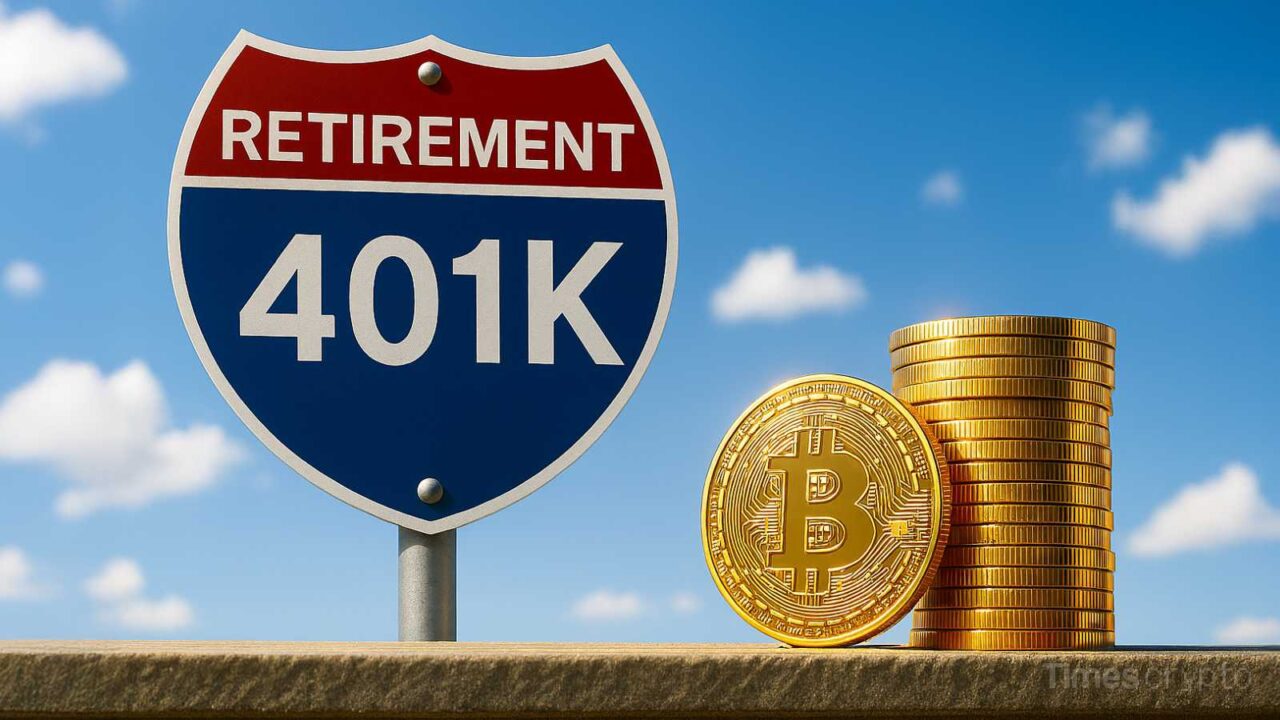A new bill from House Republicans seeks to transform President Donald Trump’s August executive order on retirement investing into permanent law. The move could open U.S. retirement portfolios to Bitcoin and other alternative assets.The measure, titled the Retirement Investment Choice Act, is expected to be introduced Tuesday by Rep. Troy Downing (R-Mont.), according to sources familiar with the legislation.
The proposal would formally enshrine Executive Order 14330, which directed the Labor Department to allow retirement plan administrators broader discretion to include digital and alternative investments in 401(k)s and similar plans. The bill, described as just one page long, would give Trump’s directive full legal authority, ensuring that future administrations cannot easily overturn it.
If passed, it would clear the way for financial institutions to add crypto-linked products and other nontraditional assets to the menus of employer-sponsored retirement plans.
Expanding access to alternative investments gives working Americans more tools to grow and protect their savings,” Downing said in a statement reported by Politico. He added, “President Trump’s leadership on this front empowers individuals to benefit from innovation in the financial markets.
From Executive Order to Legislation
Trump’s executive order, signed in August, instructed both the Department of Labor (DOL) and the Securities and Exchange Commission (SEC) to revise existing rules that restrict exposure to “alternative assets.” The term covers a wide spectrum: from private equity and commodities to insurance-based instruments and digital currencies such as Bitcoin.
Under the order, the DOL was granted 180 days to issue a proposal outlining new guidelines for fiduciaries managing retirement accounts. That deadline is expected to arrive in early February. However, the ongoing government funding lapse and staff shortages at the Employee Benefits Security Administration, which oversees workplace retirement plans, could push the timeline back.
In August, a group of Senate Republicans urged the Labor Department to act swiftly, pressing for a “regulatory safe harbor” that would shield plan providers from liability when offering alternative investment options. “Timely action is essential to provide certainty for plan sponsors and maximize the impact of the president’s directive,” the senators wrote.
Industry Reaction
The retirement and investment industry has largely supported the initiative, framing it as a necessary modernization of the U.S. retirement system. Brian Graff, chief executive of the American Retirement Association, said professional fiduciaries, not regulators, should determine which investments best serve participants. “Retirement professionals are equipped to assess what’s appropriate for their clients,” Graff said.
Proponents argue that expanding access to crypto and private market investments could diversify risk and potentially improve long-term returns for savers. Critics, however, warn that introducing volatile digital assets into retirement plans exposes workers to unnecessary risk.
Political Hurdles Ahead
Despite backing from House Republicans, the proposal faces an uphill path in Congress. Democrats are unlikely to support legislation that broadens access to crypto in federally regulated retirement accounts. No companion bill has yet been introduced in the Senate, leaving the measure’s prospects uncertain.
Still, the initiative underscores how the Republican Party has increasingly tied itself to the digital asset movement. Many GOP lawmakers now portray Bitcoin as a pillar of financial independence and a safeguard against inflation and centralized monetary control.
Earlier this year, Trump issued another order creating a Strategic Bitcoin Reserve, consolidating government-held cryptocurrency, including roughly $14 billion worth of seized Bitcoin, into a national digital asset stockpile. The reserve is intended to serve as a long-term store of value rather than a fund for liquidation.
Together, these moves highlight the administration’s growing effort to integrate Bitcoin into federal policy and financial infrastructure and to ensure that digital assets play a lasting role in America’s retirement space.
Read More: Powell Signals Caution Ahead of October Rate Decision, Impact on Bitcoin & Crypto







